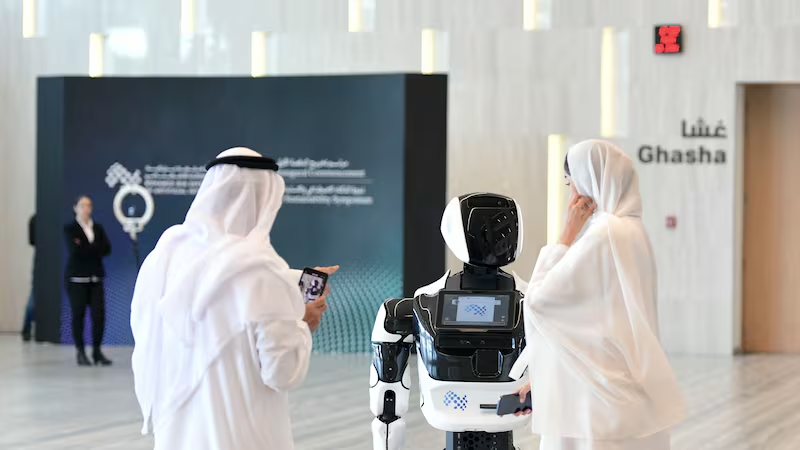Artificial Intelligence in Governance
The United Arab Emirates has long positioned itself as a global pioneer when it comes to embracing innovation and emerging technologies. In recent years, the country has taken significant strides in integrating artificial intelligence (AI) across various sectors — and one of the most impactful areas has been public services. From smart police stations to AI-driven government portals, the UAE is actively transforming the way it serves its citizens and residents. This ambitious drive is not just about adopting cutting-edge technology for the sake of progress; it’s a well-planned strategy aimed at enhancing operational efficiency, reducing bureaucratic delays, and delivering highly personalized services to individuals.
What makes the UAE’s AI journey remarkable is its bold vision. The government has established dedicated ministries and strategies to harness the power of AI, ensuring that every resident can benefit from faster, safer, and more intuitive services. Whether it’s renewing a visa, paying utility bills, or receiving healthcare updates, AI is streamlining processes that were once tedious and time-consuming. As one of the world’s leading adopters of AI in governance, the UAE is setting an example for how countries can embrace technology not just for economic gain but to improve everyday lives in meaningful, practical ways.

AI Strategy 2031
The UAE’s national AI strategy focuses on areas like healthcare, transportation, education, and government services.

Smart Government Portals
Platforms like DubaiNow and TAMM use AI to predict user needs, streamline processes, and offer over 130 smart services.
AI in Law Enforcement and Traffic
Dubai Police use AI for predictive policing, facial recognition, and smart patrols. AI also manages traffic signals and reduces congestion.

AI in Healthcare
Hospitals in Abu Dhabi and Dubai use AI for diagnostics, surgery assistance, and patient care, enhancing accuracy and outcomes.
Education and AI Integration
AI tutors and assessment tools help teachers track student performance. The Ministry of Education also uses AI to design better curriculums.

AI-Powered Chatbots
Many ministries have integrated AI chatbots that assist citizens 24/7 in multiple languages, reducing human workload and wait times.
Ethical Considerations
The UAE ensures that AI use follows ethical guidelines, privacy regulations, and transparent decision-making protocols.

Conclusion
The UAE’s commitment to embedding AI within its public services reflects more than just a fascination with futuristic technology — it showcases a deep understanding of how innovation can directly uplift communities and improve quality of life. By prioritizing efficiency, cutting down unnecessary bureaucracy, and offering citizens hyper-personalized experiences, the nation is redefining what public service in the modern era should look like. Initiatives like AI-powered customer happiness centers, smart traffic systems, and virtual healthcare consultations are turning what was once aspirational into a lived reality for residents and visitors alike.
As artificial intelligence continues to evolve, the UAE’s proactive approach ensures it remains at the forefront of smart governance. Its investments in AI education, data security, and ethical regulations further guarantee that this transformation is both sustainable and responsible. Other countries are now looking to the UAE as a model for seamlessly integrating AI into public infrastructure. Ultimately, the UAE’s AI-driven services are a testament to what’s possible when innovation is combined with vision, leadership, and a genuine focus on people’s well-being. In the years ahead, we can expect even more groundbreaking advancements, as the country continues to push boundaries and set global benchmarks in smart governance.
Do follow UAE Stories on Instagram













